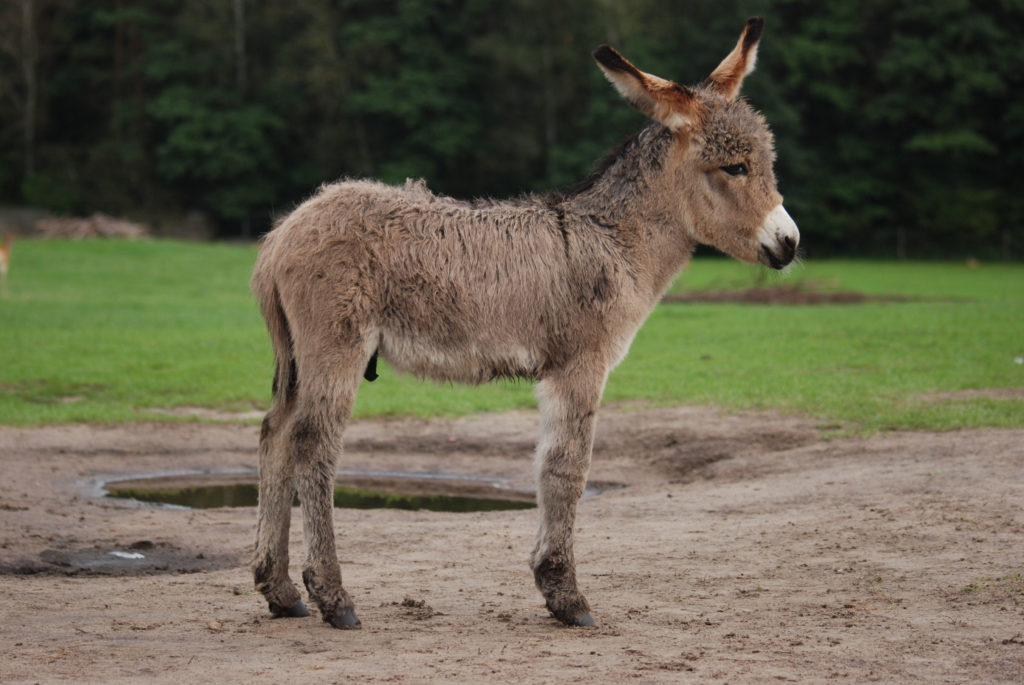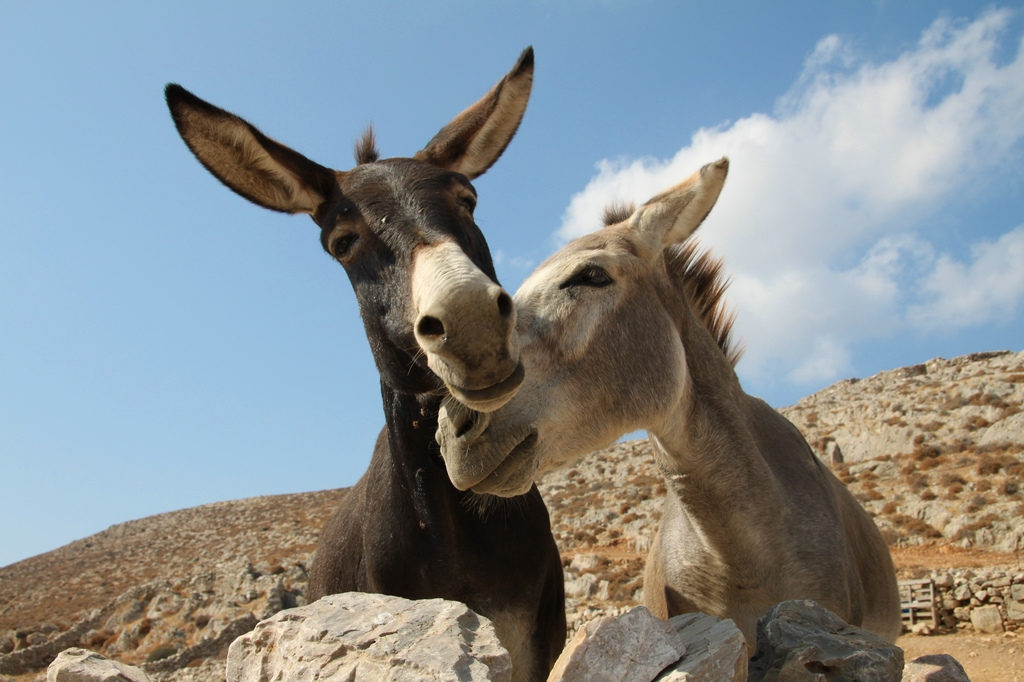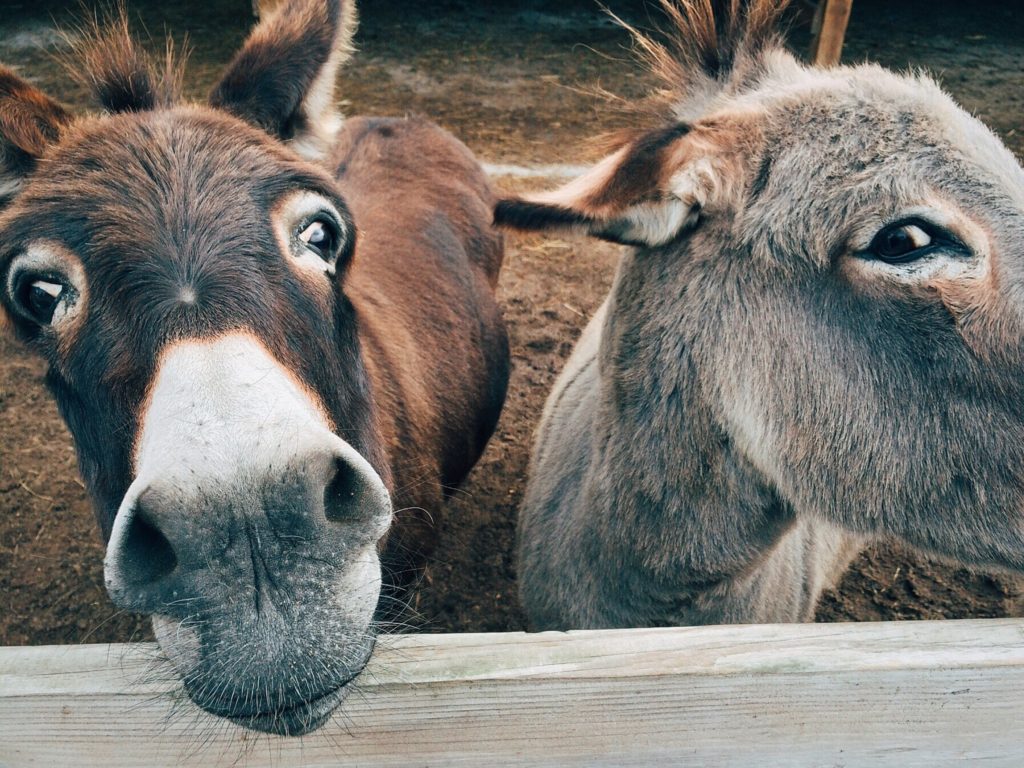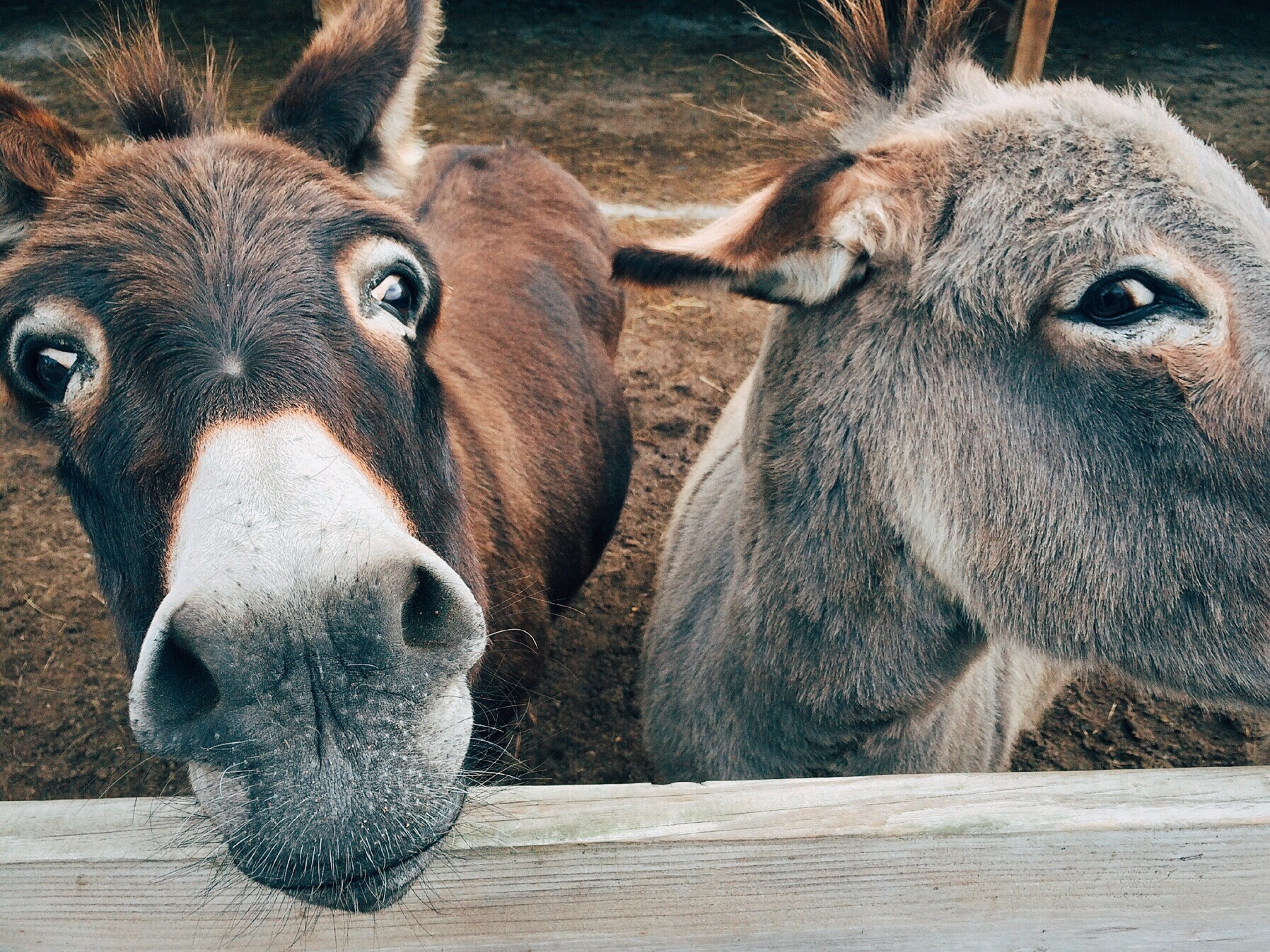Donkeys are incredible animals with amazing memory and an incredible amount of physical strength. Below we have listed 28 bizarre and weird facts about donkeys to get you better acquainted with this awesome animal.
1. A donkey is much stronger than a horse of the same size.
2. Donkeys have an amazing memory. For example, they are known for recognizing areas and other donkeys that they met for up to 25 years.
3. If a donkey deems that something is unsafe, it will refuse to do it.
4. Unlike horses, donkeys are not easily startled as they have a strong sense of curiosity.
5. Due to their highly developed sense of self preservation, they have a reputation for stubbornness. It’s incredibly difficult to force or scare a donkey into doing something that it sees as unsafe or not in its best interest.
6. Unlike horses, donkeys tend to think more independently and they tend to act in their own self interest.

7. When training a donkey, people have to show them by their words and actions that they will protect them from harm. If they don’t trust you, they will not follow your instructions.
8. When they lived in desert areas, donkeys were able to make calls to each other for up to 60 miles away. Their ability to hear sounds from such vast distances is due to their large ears, which also help them keep cool.
9. Their fur isn’t waterproof, therefore, they hate being out in the rain.
10. Since they’re used to living in harsh environments, donkey’s can utilize 95% of what they eat. This means that this digestive system can break down inedible vegetation and extract moisture from almost any food. However, this means that their manure doesn’t make very good fertilizer.
11. Donkeys are herd animals, therefore, they don’t like being left alone. However, they don’t have to be held with their own kind as they have shown to be quite content living with goats.
12. A herd of donkeys will naturally choose the strongest donkey to become their leader, even if the donkey is domesticated. When living in the wild, the lead donkey will stay to ward off attacks from predators while the rest of the herd escapes to safety.
13. Similar to apes, donkeys who live in a herd will groom each other.

14. In Ancient Egypt, the Egyptians used donkeys to carry all of their precious metals from Africa.
15. In Ancient Greece, donkeys were used for any work that had to be done on narrow paths between vines in vineyards. This is why the donkey was associated with the Syrian God of Wine, Dionysius.
16. Donkeys were used to carry silk along the Silk Road from the Pacific Ocean to the Mediterranean.
17. They were introduced in England in 43 CE after the Roman invasion of Britain.
18. The Roman Army moved donkeys into Northern Europe because they needed them for work in agriculture, vineyards and as pack animals.
19. Donkeys are often used as guard animals for cattle, sheep and goats since they have a natural aversion to canines and will do whatever it takes to keep them away from a flock.
20. They provide a lifeline to many families in various regions around the world as they help with water and wood collection, along with land cultivation and transportation to the marketplace.
21. Donkeys are often left with horses because they seem to have a calming effect on nervous horses. For example, when a foal has left its mother it will often turn to the donkey for support.
22. Ass is the correct term for a donkey, though they have sometimes been called a burro or a jackstock.

23. A young donkey is called a foal. A young male donkey is called a colt and a young female donkey is called a filly.
24. The correct name for a female donkey is jenny while the correct name for a male donkey is jack.
25. There are three different categories of donkeys. The first are the miniatures, which are 36 inches and under. The second are the standards, which are between 36 and 54 inches. Lastly are the mammoths, which are over 54 inches in height. All of these measurements are up to the shoulders of the animal.
26. Donkeys first originated in the African Desert and are a direct descendant of the African Wild Ass. The African Wild Ass is one of the most endangered animals in the world.
27. The weight of a donkey ranges but some tend to go as high as 570 pounds.
28. The rare French Poitou donkey is characterized by its big head and ears. It also has a very thick, shaggy and curled black coat.





2 Comments
Pingback:
April 19, 2018 at 12:05 pmPingback:
July 10, 2018 at 2:08 pm